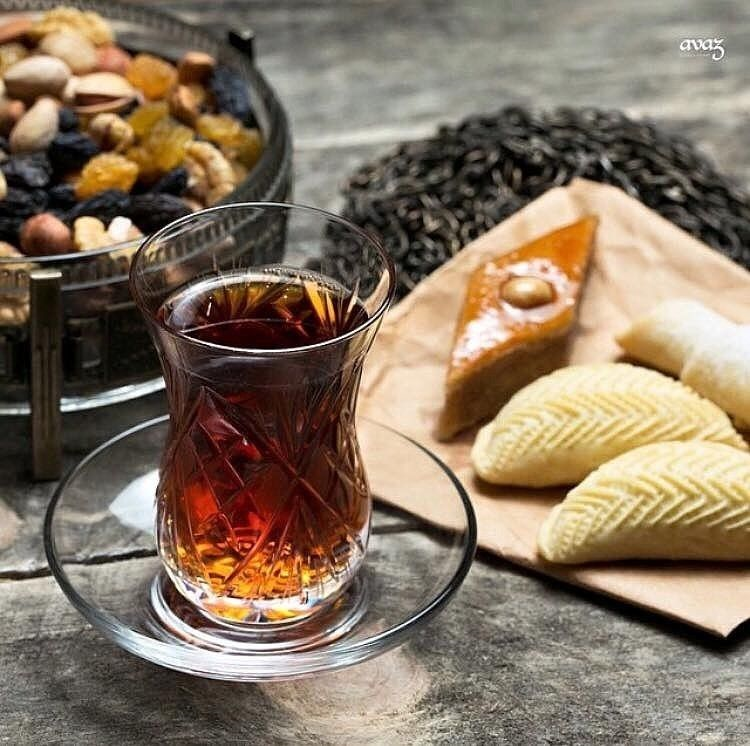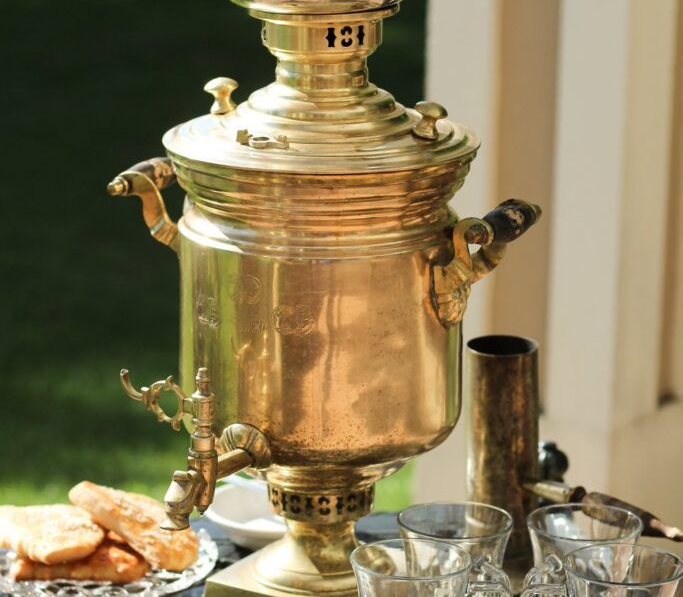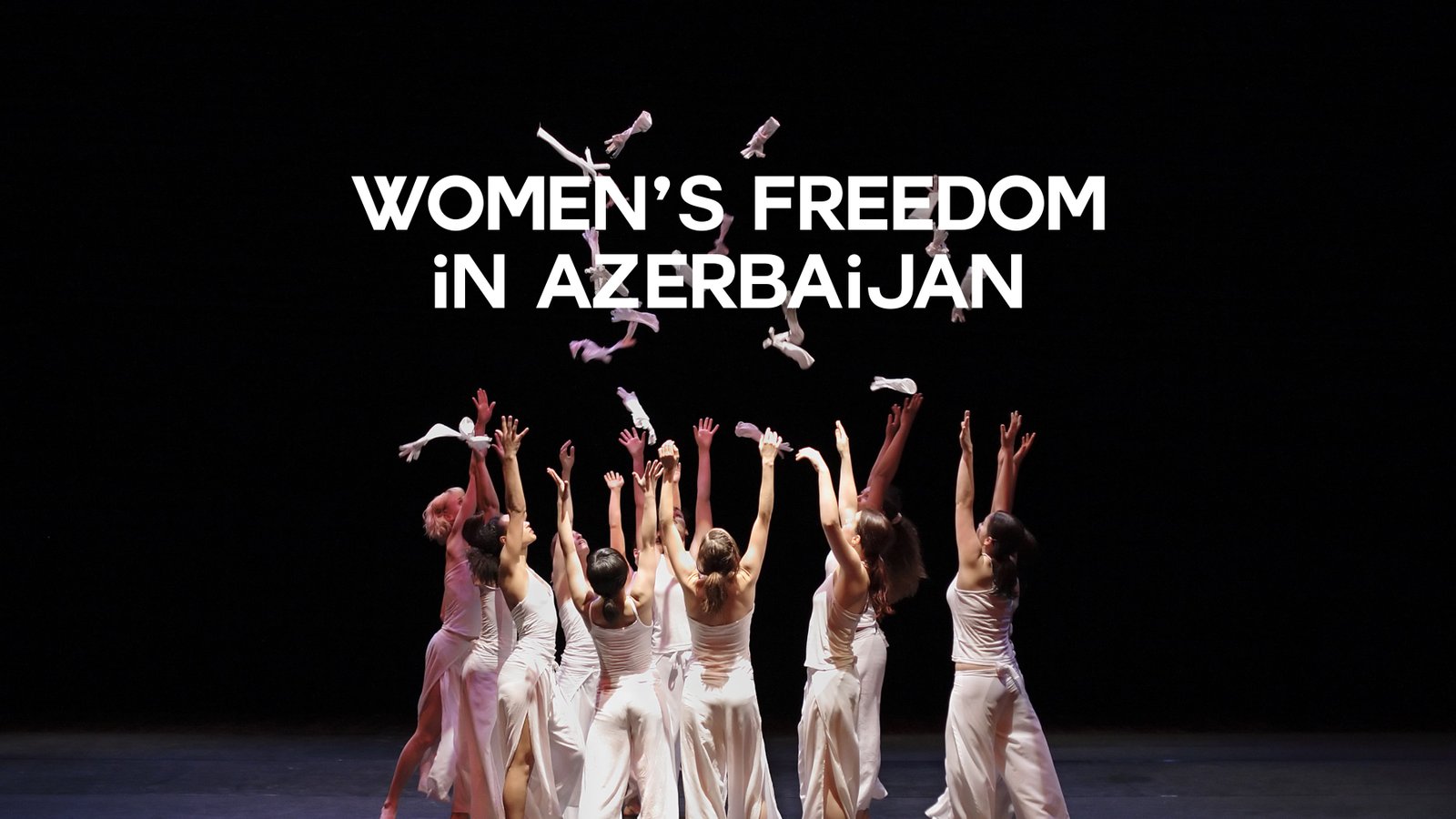Azerbaijani Tea: Traditions, Flavors, and Rituals

Tea in Azerbaijan is more than just a beverage.
It is a symbol of hospitality, family traditions, and cultural heritage. Azerbaijanis know how to turn tea drinking into a true ritual: tea is brewed in samovars, served in small glass
cups placed on saucers, and accompanied by sweets — baklava, kutab, honey pastries, dried apricots, and sherbet. A cup of tea here is not only a way to relax but also a reason to gather, converse, discuss important events, and strengthen friendship and hospitality.
The history of tea culture in Azerbaijan dates back to the 19th century, when Lankaran and its surroundings became centers for growing green tea. The mild climate, fertile soil, and abundant rainfall create ideal conditions for tea plantations. Lankaran tea is known for its gentle aroma and rich taste, and it retains its health benefits thanks to traditional methods of leaf processing.
In Azerbaijan, tea is not just green or black. In mountainous regions such as Gabala and Ismayilli, tea is often brewed with the addition of local herbs: mint, thyme, blackcurrant leaves, and even rose petals. Each family may have its own unique tea recipe, passed down through generations. Some families add a pinch of sugar directly to the samovar, while others prefer to serve sugar cubes separately, allowing each guest to adjust the sweetness to their liking.
Traditional tea houses, or "çayxana", are a special chapter in Azerbaijan’s culture. In historic towns like Baku, Sheki, and Lankaran, these tea houses have been preserved since the 19th century. They are cozy spaces with wooden tables, carved chairs, and samovars. Every guest feels welcome here, and the relaxed atmosphere fosters warmth and comfort. Tea houses serve as meeting places for friends, family gatherings, and even business discussions — where every cup of tea becomes part of the conversation and the connection.
Tea is closely linked to cultural traditions and celebrations. At weddings, family festivities, and national holidays, tea is always served as a sign of respect and care for the guests. In some regions, there’s even a tradition of serving specific sweets with tea depending on the time of day or the occasion.
 Tea is closely linked to cultural traditions and celebrations. At weddings, family festivities, and national holidays, tea is always served as a sign of respect and care for the guests. In some regions, there’s even a tradition of serving specific sweets with tea depending on the time of day or the occasion.
Tea is closely linked to cultural traditions and celebrations. At weddings, family festivities, and national holidays, tea is always served as a sign of respect and care for the guests. In some regions, there’s even a tradition of serving specific sweets with tea depending on the time of day or the occasion.Azerbaijani tea is deeply intertwined with the country’s history and art. In cities and villages, you can still see old samovars decorated with carvings and ornaments, as well as traditional teapots that carry memories of generations. Every cup of tea is a small journey through time — a chance to touch the country’s heritage and feel its soul.
By immersing yourself in Azerbaijan’s tea culture, you not only discover flavors and aromas but also its history, traditions, and human connections. From the green plantations of Lankaran to the cozy tea houses of old Baku, every cup of tea tells a story — uniting the past and present and offering a unique cultural experience. Azerbaijani tea is not just a drink — it is a small celebration to be shared with loved ones and friends, letting you feel the heart of the country with every sip.







.jpg)




Comments
No comments yet.
Leave a Comment